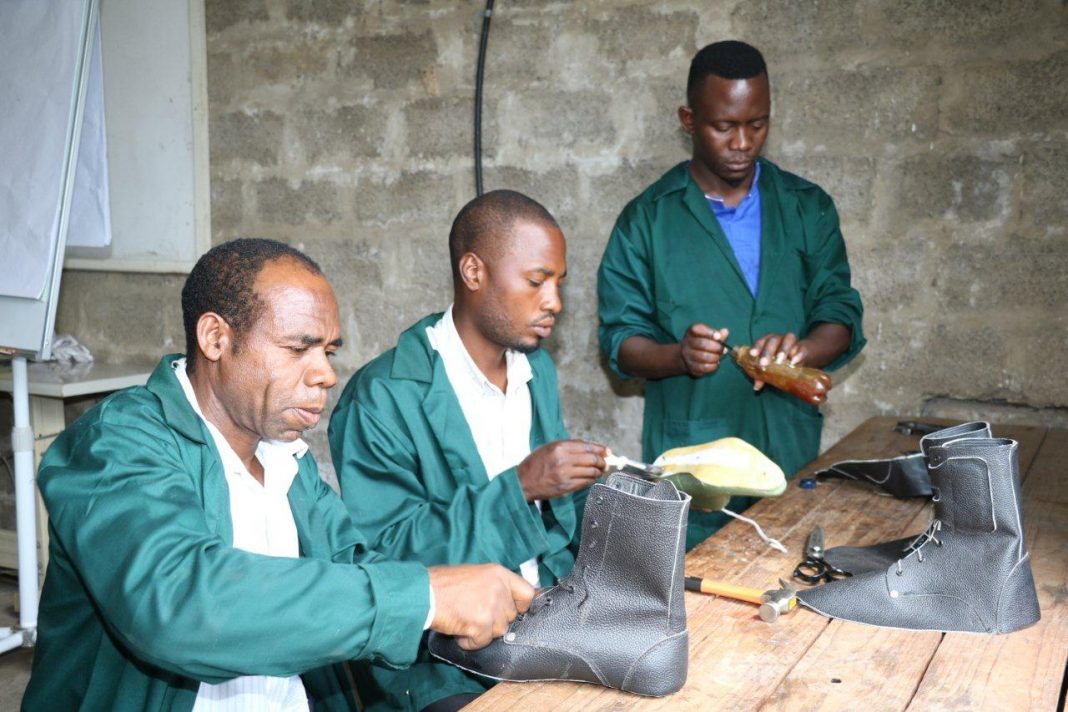As shoe brands go, it’s not exactly up there with the major high-street labels; but CLCs – pronounced “Clicks” – are slowly gaining a reputation on the Copperbelt as good-quality, hand-made shoes that won’t break the bank.
CLC is an acronym for Chingola Leather Cluster, a small cottage industry that produces handmade leather shoes, thanks to a K120 000 grant by Konkola Copper Mines (KCM). The money has funded training, the purchase of leather, and the installation of shoe-making equipment and machinery.
“We noticed many people in the townships were repairing shoes, but not making them,” says local entrepreneur Preston Viswamo, who came up with the idea for the business. “It was just the skills that were lacking, so we set about teaching them the skills.”
CLC is part of the larger CLIC (Copperbelt Leather Industry Cluster), which was founded by Viswamo. As we take a tour of the Chingola workshop, one can’t help noticing that Viswamo is wearing a really smart pair of handmade shoes. It turns out they are CLICs, and he says he wears them all the time.
It’s ultimately about providing employment in the community and imparting skills
On a busy day, the Chingola workshop is a hive of activity as trained shoemakers sit at various machines, painstakingly going through the process of turning raw leather into finished shoes.
The leather is cut according to patterns and made to fit over a last, which is a three-dimensional mould of a foot, typically made of plastic or wood. The shoe then starts to take shape over the last as the various sections of leather are stitched together; finally, the soles and heels are added. The result is a remarkably well-put-together shoe which would not look out of place on the shelves of a high-street shoe-shop.
The programme has involved identifying people in the community to be trained in shoe-making. They are then allowed to use the facilities in the warehouse to produce finished shoes.
“They are paid according to their labour and input costs, either individually or as a group,” he says. “The more shoes they make, the more money they get.” The initial costs involved were borne by KCM as part of its Corporate Social Responsibility programme, though eventually this will decrease as the business becomes cashflow positive and profitable.
The wide variety of shoes, boots and leather belts produced by CLC are on sale at the warehouse, and are priced at around 50% of equivalent retail store prices. Eventually, the product range will be made available for sale at local stores.

According to KCM, the entire Copperbelt Leather Industry Cluster (CLIC) aims to benefit around 400 households, and eventually as many as 2 400 people from Chingola, Chililabombwe and Kitwe – particularly women, shoe-makers, cobblers and young people.
“Ultimately, it’s all about creating employment in the community and imparting skills,” says Brian Siatubi, CSR Manager at KCM. “So long as quality standards are met, we will in the next few years invite them to supply leather products like safety boots and gloves to our mining operations.”
See also: Diesel fuel from trees


























